5th Floor, West Tower, World Financial Centre
1 Dong San Huan Middle Road
Chaoyang District, Beijing 100020, China
Tel: +86 10 5081 5880

January 13, 2023
SAIF and Chengdu Commercial Association Sign Strategic Cooperation Agreement
On December 13, 2022, SAIF signed a strategic cooperation agreement with Chengdu Commercial Association. Both sides will capitalize on their respective strengths and cooperate in talent training, resource sharing, study visits, and academic research. SAIF has gathered together a world-renowned faculty and the most complete high-end financial management courses. Its strengths lie in academic research and originality. Chengdu’s financial industry has been developing rapidly in recent years. In this context, SAIF and Chengdu Commercial Association reached a strategic cooperation. With this synergetic bond, we will explore a new mode of cooperation between industry, academia, and research. This will be a new model for value co-creation between regional commercial associations and financial institutions. SAIF will contribute with its capabilities in academic research and talent training, and with its rich industry resources in the financial industry. It will actively assist the member enterprises of Chengdu Commercial Association with innovative development. Both sides will deepen cooperation based on a common vision. We will complement our respective advantages and enhance common development. Together, our contributions will accelerate the high-quality economic development of Chengdu.
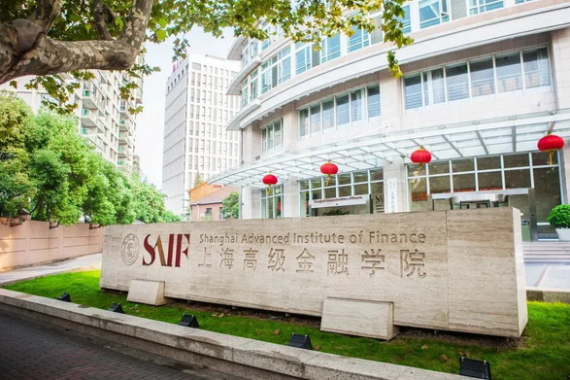
January 13, 2023
SAIF Professors' Work Published or Accepted by Top Academic Journal Management S ...
Recently, four papers authored by SAIF Professors (Feng Li, Nengjiu Ju, Xiaoyun Yu, and Yurong Hong) were accepted or published in the top international academic journal Management Science. This demonstrates the high academic standards and intellectual originality of our Professors. Management Science was launched by the American Institute for Operations Research and the Management Sciences in 1954 and is the oldest and most reputable top journal in the field of economics and management. It is ranked as one of the top international journals by UTD24, FT50 and ABS(4*). Its impact factor in 2021 was 6.172, and 7.772 for the last five years. Management Science is also one of the most important reference journals for ranking, title promotion, research projects, and talent program evaluation for global business and management schools. The four papers, and their authors, are as follows: Performance Evaluation, Managerial Hedging, and Contract Termination Yu Huang, PhD graduate of SAIF; Changjiang Industrial & Financial Services Nengjiu Ju, Professor of Finance; Academic Director of Ph.D. Program at SAIF Hao Xing, Professor, Questrom School of Business at Boston University Panda Games: Corporate Disclosure in the Eclipse of Search Kemin Wang, Professor, School of Management at Fudan University Xiaoyun Yu, Professor of Finance at SAIF Bohui Chang, Professor, School of Economics and Management at the Chinese University of Hong Kong (Shenzhen) The Effect of Government Reference Bonds on Corporate Borrowing Costs: Evidence from a Natural Experiment Mark J. Flannery, Professor, Warrington College of Business at University of Florida Yurong Hong, Assistant Professor at SAIF Baolian Wang, Professor, Warrington College of Business at University of Florida The Number of Estimates in Footnotes and Accruals Huafeng Chen, Professor of Finance, Fanhai International School of Finance at Fudan University Jason V. Chen, Assistant Professor, University of Illinois (Chicago) Feng Li, Associate Dean and Professor of Accounting at SAI
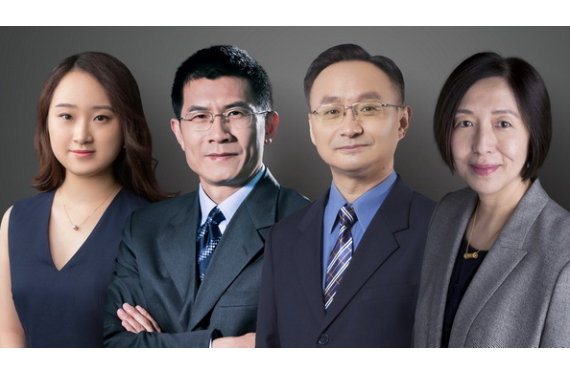
January 12, 2023
SAIF Academically Supports the 4th Shanghai International Fintech Forum
On December 17, 2022, the 4th Shanghai International Fintech Forum was held by the Shanghai Fintech Industry Alliance (SFIA) in Shanghai, with academic support from SAIF. With the theme of “New Journey, New Development, New Challenge: Fintech in the Digital Economy Era”, the forum consisted of a main forum and five parallel forums. It featured discussions on digital finance, talent building, new financial infrastructure, and smart pensions. Participants discussed the in-depth application of cutting-edge technology in the financial industry and the development of fintech in the digital economy era. The Shanghai Fintech Talent Training Base was also announced to be launched in the forum. With the advantages of ecological agglomeration and spatial location of industrial parks and industries, the base will create a platform for matching the supply and demand of financial technology talent. A joint training base and a standard certification center will also be established. The base will help those with fintech talent to be more market-oriented, professional, and practical. It will also promote the upgrading of Shanghai as a Fintech Center. SAIF will jointly build the training base as one of the first academic institutions to do so. During the forum, the 2021 Shanghai Fintech Development White Paper was also released. This is the third consecutive year for the SFIA to release the White Paper. A series of initiatives for the construction of the Shanghai Fintech Center was launched as well. Twenty-six projects were selected for the Shanghai Capital Market Fintech Innovation Pilot, covering various business scenarios in capital management technology, information technology infrastructure, compliance and supervision, business assistance, and customer service. SFIA established two new committees to promote the development of the fintech industry, namely “The Smart Finance Committee” and “Frontier Technology and Security Committee”.
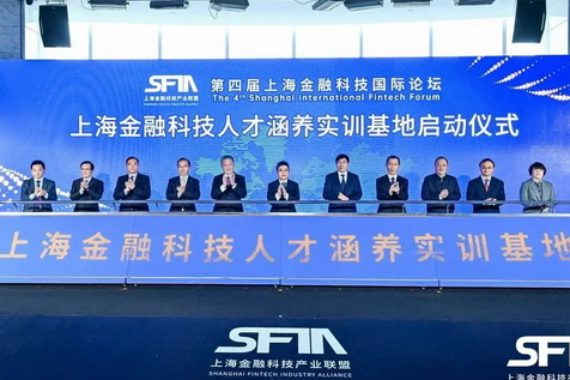
January 11, 2023
SAIF-ICBC 2022 Entrepreneur Financial Well-being Index Released
Recently, the 2022 Entrepreneur Financial Well-being Index Report (Report) was released online by SAIF and ICBC Private Banking. The Report interviewed 1,020 entrepreneurs who were private banking clients, with a geographical coverage of 28 provincial administrative regions and subordinate cities. The proportion of male and female interviewees is balanced, and nearly 60% of the interviewees are over 50 years old. This year’s research sample is more representative. 1. More balanced age distribution: the proportion of interviewees under 40 and over 60 increased; 2. More balanced industry distribution: real estate industry and manufacturing industry accounted for a reduction of more than 5%, respectively; 3. Changing stage of development: mature enterprises decreased by 16%; enterprises in start-up period, contraction period, and transition period increased by 6%, 7%, and 4% respectively. Combining advanced foreign models with China’s national conditions, the Report builds an original assessment system for the well-being of Chinese entrepreneurs. Based on last year’s model, SAIF and ICBC upgraded and optimized the model in accordance with changes in the industry in order to present the well-being of entrepreneurs more accurately. The Report shows that the overall 2022 ICBC Entrepreneur Financial Well-being Index scored 76, with a slight increase compared to last year. In terms of each sub-index, “Confidence in Family Business Development” and “Financial Assets Well-Being” perform well, while “Family Business Well-Being” and “Family Governance Well-Being” still have room for improvement. Meanwhile, the Report shows an increase in the concern of entrepreneurs for the “Financial Assets Well-Being” and “Family Governance Well-Being”. It also shows that most entrepreneurs would gradually focus on the balance between the business and the family after a successful venture, especially during the maturity of the business. In addition, they do pay attention to the segregation of family assets from business assets, and family development governance. In the future, SAIF will continue to monitor the wealth management of entrepreneurs, their family businesses, and their enterprise development. It will provide more research and education support for the wealth management industry.
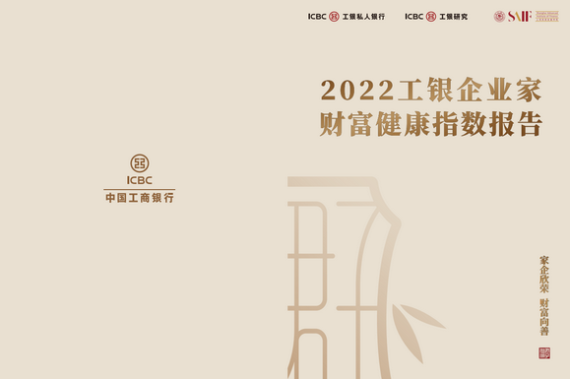
December 14, 2022
2022 Shanghai Finance Talents Workshop Held at SAIF
On November 5th, entrusted by the Shanghai Finance Party Committee and the Shanghai Municipal Financial Regulatory Bureau, the 2022 Shanghai Finance Talents Workshop was held at SAIF. The Workshop was inaugurated in 2021, aiming to further strengthen the cultivation of specialized Shanghai financial talent with political equity, macro insights, and professional capability for the construction of Shanghai as an International Financial Center. This year’s workshop was divided into two stages: Centralized Study and Group Study. Centralized Study focused upon the spirit of the 20th CPC National Congress, guiding participants in service of the country. In the Group Study stage, which aims to enhance macro thinking and professional skills, the participants were divided into a Leader Group and a Youth Group, with “New Pattern of China’s Economy” and "Construction of Shanghai as an International Financial Center" as the themes, respectively. A total of 93 individuals, selected from 62 units of the Shanghai financial system, participated in the Workshop. Developing top financial talent and policy think tanks, with a concordant world-class faculty and an open research platform, has always been SAIF’s mission. SAIF and its affiliated institutes, CAFR and SAIFR, are committed to providing multi-faceted policy advice, intellectual support, and comprehensive services for the development of government departments and the financial industry. Based upon frontier international financial innovation, CAFR and SAIFR focus on academic research, policy research, and applied research, respectively. According to statistics, from 2021 to October 2022, SAIF has undertaken and completed 43 think tank projects and 27 decision-making consultancy reports entrusted by the government. In the future, SAIF will strengthen its teaching and research capabilities to promote the construction of Shanghai as an International Financial Center and the reform and opening up of China’s development.
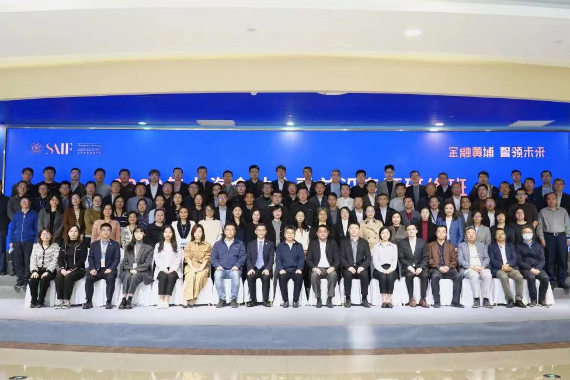
December 14, 2022
“Shanghai Green Finance Index” Shows Record High in 2021
On November 26th, the Shanghai Green Finance Index (Index) was released at the 2022 Shanghai International Financial Center (SIFC) Development Forum. The forum was organized by SAIF and co-organized with CCTV Shanghai, the Shanghai Xuhui District People’s Government, and the Shanghai Finance Society. The Index aims to reflect the overall performance of Green Finance in Shanghai. It creatively develops both the Shanghai Green Finance Current Performance Index and the Shanghai Green Finance Social Awareness Index based upon one assessment framework and two sets of methodologies. Both overall scores show that Shanghai is doing well with Green Finance. Unlike existing Green Finance indices, the Index team summarized six factors that drive Green Finance, after considering different dimensions such as: academic theory, policies and regulations, practical operations, and analyzing other Green Finance indices. The six factors are: financial market construction, financial instruments, policy support and guarantee, industrial development and corporate activities, ecological environment and urban construction, and macroeconomics and infrastructure. The team used the end of October 2022 as the cut-off date for the previous year’s data, and calculated the overall score of the Shanghai Green Finance Index in 2021. In accordance with industry best practices for a Green Finance Index, the scores are expressed as growth rates. To indicate the development trend for Shanghai’s Green Finance, the team used the previous data to calculate the growth rates for 2018, 2019, and 2020. The overall score of the Shanghai Green Finance Index in 2021 was 11.67%, compared to 3.92% in 2018, 5.61% in 2019, and 6.67% in 2020 — indicating sharp growth and promising prospects.
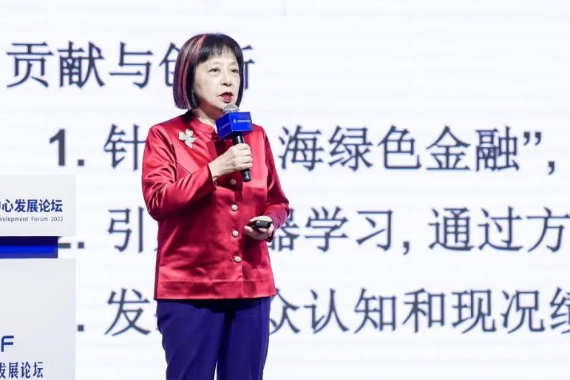
December 13, 2022
SAIF Sustainable Investment Research Center Established
On November 26th, the Sustainable Investment Research Center (SIRC) of SAIF was inaugurated at the 2022 Shanghai International Financial Center (SIFC) Development Forum. The forum was organized by SAIF and co-organized by CCTV Shanghai, the Shanghai Xuhui District People’s Government, and the Shanghai Finance Society. The SIRC aims to become a research hub and policy think tank in the sustainable investment area in China, as well as a high-end talent base for developing a new generation of investors and asset managers. Based on the current sustainable development strategy in China, and benchmarking with China’s world-class finance institutions, SAIF established the SIRC with global partners including Franklin Templeton Investments and the China-U.S. Green Fund. SIRC works on academic research, policy think tanks, application consulting, and talent training in the field of sustainable investment. The research of SIRC will cover systematic sustainable investment, including: the Definition and Implementation Methods of ESG, Industry Benchmarks, Development Strategy, and Evaluation and Regulation. In terms of talent training, SIRC will develop new courses and establish a disciplinary system in the field of sustainable investment related to ESG — with summarized research knowledge and practical experience. It will cultivate high-end talent for government authorities, regulators, financial institutions, asset management companies, and enterprises interested in sustainable investment. Meanwhile, the SIRC will enhance the influence of sustainable investment and promote a sustainable transformation of economic development through the annual Sustainable Investment Development Forum.
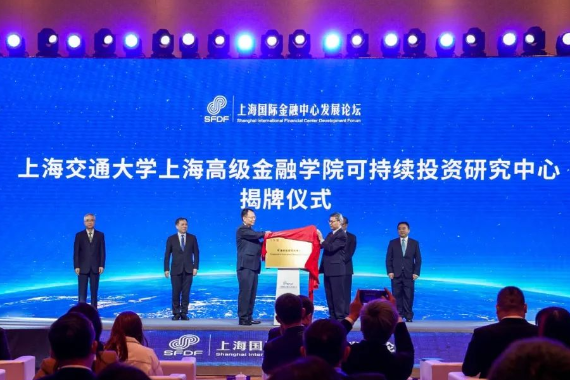
December 12, 2022
Shanghai International Financial Center Construction Series Report 2022 Released ...
On November 26th, Shanghai International Financial Center Construction Series Report 2022 (the Report) was released at the 2022 Shanghai International Financial Center (SIFC) Development Forum. The forum was organized by SAIF and co-organized with CCTV Shanghai, the Shanghai Xuhui District People’s Government, and the Shanghai Finance Society. To further promote the construction of the SIFC, SAIF Think Tank organized relevant internal and external experts to set up a special project team. Based on previous projects (Thematic Study on the Revision Project of Regulations on Promoting the Construction of SIFC and SIFC Construction Goals and Development Suggestions) and on development goals proposed in the 14th Five-Year Plan for the Construction of SIFC, the team focused on deepening the financial functions of SIFC and upon the enhancement of Shanghai’s urban capacity. The team summarized the construction experience and development status in key areas of SIFC, analyzed problems encountered in the construction process, and proposed further initiatives for the construction of the SIFC. In 2023, SAIF will release the SAIF-China Economic and Financial Database and the SAIF- International Business Case. The SAIF-China Economic and Financial Database provides complete, rigorous, professional and comparable economic data in order to provide a global authority on China’s financial research and to promote China as a global financial research hub. The SAIF-International Business Case is a collection of case studies on Business Finance, mainly used for finance teaching, practice and popularization. It aims to build an international and localized top-case resource pool, which will cover key industries of social and economic operation and related financial service areas, including, but not limited to: Platform Economy, Asset Management, Family Wealth, FinTech, Technical Finance, and Science & Innovation Parks.
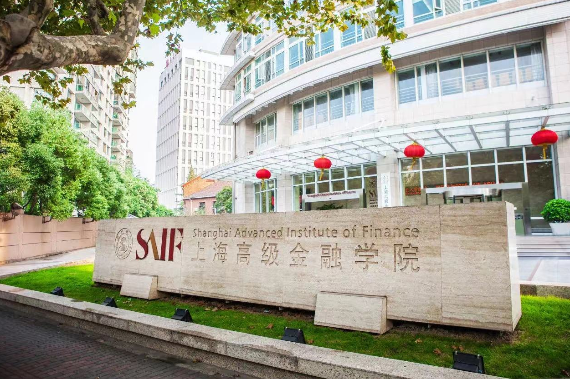
December 12, 2022
2022 Shanghai International Financial Center Development Forum Held and Reported ...
On November 26 2022, the Shanghai International Financial Center Development Forum was held in Shanghai. The forum was organized by SAIF, and co-organized with CCTV Shanghai, the Shanghai Xuhui District People’s Government and the Shanghai Finance Society. Experts, scholars, and representatives of financial institutions were invited to express their insights on “New Journey of Shanghai International Financial Center Construction: Institutional Opening Up and High-Quality Development”. The forum was also reported on by CCTV News. During the forum, the International Financial Center (IFC) Development Report 2022 and the Shanghai International Financial Center (SIFC) Construction Series Report 2022 were released. These reports macroscopically interpreted initiatives and achievements during IFC and SIFC construction, respectively. The forum also witnessed the signing ceremony for the strategic cooperation between CCTV Shanghai and SAIF, the inauguration of the Sustainable Investment Research Center (SIRC) of SAIF, and the establishment of the West Bund Green Finance Alliance. SIRC aims to become a research hub and policy think tank in sustainable investment in China, as well as a high-end talent base for developing a new generation of investors and asset managers. Many other themes were discussed during the forum, including “How to promote the transformation and development of the real economy with Green Finance”, “How to improve the resource allocation system of Green Finance”, and “How to support the structural adjustment of Green Industry”. The Shanghai Green Finance Index was also released which reflects the overall performance of Green Finance in Shanghai. It creatively develops both the Shanghai Green Finance Current Performance Index and the Shanghai Green Finance Social Awareness Index based upon one assessment framework and two sets of methodologies. Both overall scores show that Shanghai is doing well in Green Finance.
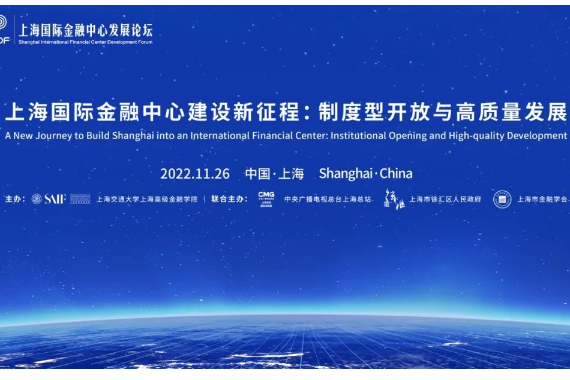
November 30, 2022
Salary of SAIF FMBA 2022 Graduates Hits High
On October 21, SAIF released its Employment Report of the Full-time Financial MBA (FMBA) Graduates. The report showed that the employment level of FMBA graduates improved significantly higher than before enrollment, including: salary, position, and the quality of employment agencies. It demonstrates that the “Finance +” multidisciplinary FMBA graduates have been recognized by the market. According to statistics, 54.7% and 45.3% of this year’s full-time FMBA graduates came from the financial industry and non-financial industry before enrollment, respectively. After two years of systematic education and training through the SAIF FMBA Program — and with guidance from the Career Development Center (CDC) — their professionalism, skills, and global comprehension have been strengthened. This year, many graduates of the FMBA program are still employed in key units — such as the Shanghai Stock Exchange and the State-owned Assets Supervision and Administration Organization. In addition, 75.6% of the FMBA graduates entered the financial industry employers included: CICC, CITIC Securities, Huatai United Securities, Guotai Junan Securities, Everbright Securities Capital Management, and Essence Securities. Meanwhile, the comprehensive skills and cross-border thinking of SAIF FMBA graduates are favored by industry as well. This year, 24.4% of graduates are employed in non-financial industries, working as corporate executives, in consulting/strategic investment, in operations, in project management, and as management trainees. Most of the employed organizations are high-tech enterprises, some of which include Tencent Technology, Contemporary Amperex Technology, and Shanghai Henlius Biotech. In terms of salary, 54 FMBA graduates had an average starting salary of RMB 455,000 (up 26% and 86% over figures from 2021, and before enrollment, respectively), with the median being RMB 400,000 (an increase of 33% and 50% over figures from 2021, and before enrollment, respectively). Shan Wei, an FMBA graduate who joined the Tencent Global MBA Management Trainee Program (Industrial Internet Direction) as a senior business analyst, worked as a senior strategic consultant at IBM Consulting before enrollment. Talking about his learning experience at SAIF, he said: “The professional courses offered by SAIF FMBA helped us to consolidate the theoretical foundation of finance while showing us cutting-edge trends. The practical skills training courses and practical activities conducted by CDC, and the school-enterprise cooperation and industry mentors’ guidance, enabled me to think more about my own positioning and accomplish my own goal of exploring a new career.” As the first MBA program in Finance in China, the SAIF FMBA program has always been committed to cultivating a group of entrepreneurs and professional managers with local influence, international competitiveness, and an innovative spirit. Professor Jie Chang (Academic Director of the MBA Program) said, “Our program, in terms of curriculum, training system and career guidance, focuses on finance as its core, with comprehensive skills. It helps to build up students’ financial knowledge and global vision in all aspects, to better adapt to complex and changing business environments. We will contribute more to China’s economy through their success.”
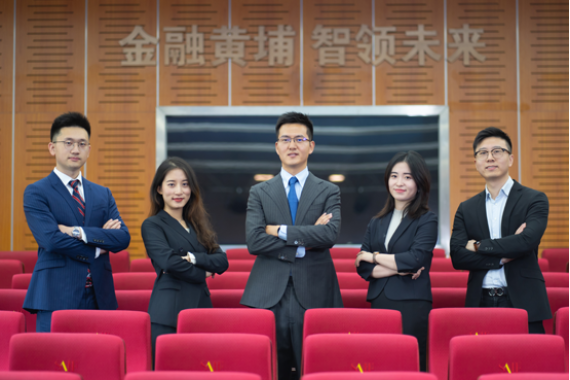

211 West Huaihai Road
Shanghai 200030, China
Tel: +86 21 6293 3500
9th Floor, Building T6, Hongqiao Hui
990 Shenchang Road
Shanghai 201106, China
3rd Floor, Building D, Chenfeng Building
800 Tongpu Road
Shanghai 200062, China
5th Floor, West Tower, World Financial Centre
1 Dong San Huan Middle Road
Chaoyang District, Beijing 100020, China
Tel: +86 10 5081 5880
1203 Tower 7, One Shenzhen Bay
Nanshan District, Shenzhen 518000, China
Tel: +86 755 8663 8815
© Shanghai Advanced Institute of Finance All Rights Reserved.


Top